9th Annual Midwest KM Symposium: Part 5 – Rajesh Dhillon

Stan Garfield
This is the fifth in a series of posts about the Midwest Knowledge Management Symposium held June 16, 2023 at Kent State University. This post is about the third presentation in Track 3 (Governance, Organization Development, and KM as a Profession) delivered by Rajesh Dhillon, who traveled all the way from Singapore to give his talk.
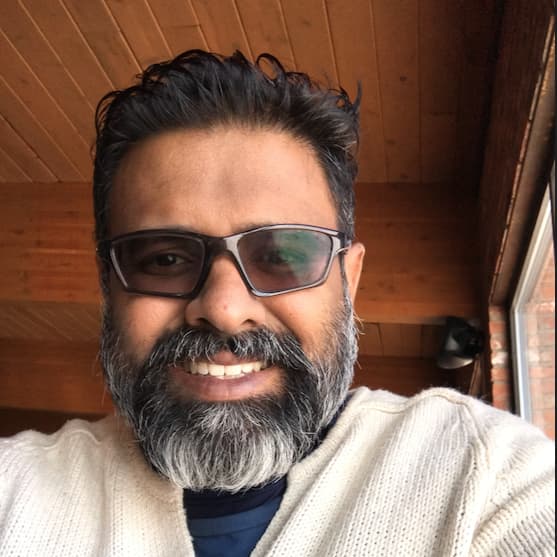
Rajesh Singh Dhillon started his KM journey with the Singapore Navy, retiring after 23 years as a naval commander. In Singapore he is an Associate Faculty at Nanyang Technological University and Singapore University of Social Science, where he teaches KM Strategy and Information Management at the Master’s and Bachelor’s level, respectively.
Rajesh is also the Knowledge Architect at Acies Innovations in Singapore, where he provides consulting services in the areas of leadership development, knowledge and performance management, employee engagement, and organizational learning.
As the President of Knowledge Management Society, Singapore and one of the founding members of Knowledge Management Global Network, Rajesh is a well-known figure in the professional KM community in Singapore and Asia.
His roles have included ISO 30401 KM consultant, lead evaluator of the Knowledge Ready Organization (KRO) awards, and member of the international judging panel for the Most Innovative Knowledge Enterprise (MIKE) awards.
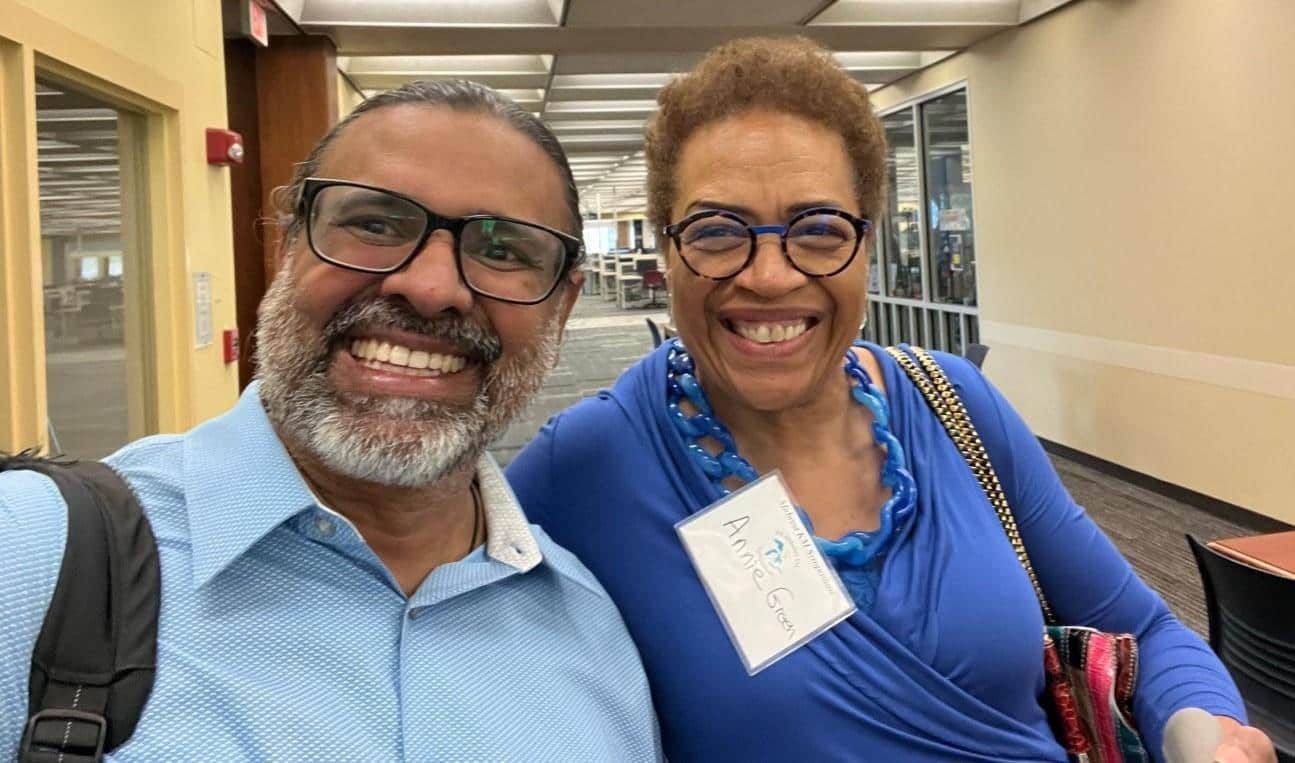
Rajesh Dhillon with Annie Green at the Midwest KM Symposium
Sustainable Knowledge: Lessons from My Plumber by Rajesh Dhillon
Rajesh began by listing the similarities in the professions of plumbing and knowledge management. He noted that while there is complexity in both jobs, they both involve fixing leaks.
He shared terms from plumbing that are also used to describe knowledge challenges:
- Knowledge Seepage
- Knowledge Loss
- Knowledge Leak
- Brain Drain
Rajesh asserted that an organization’s competitive advantage can be lost if knowledge and/or experience is lost or leaked. He then showed how leaks occurred, both pre- and post-COVID:
Pre-COVID Knowledge Leak
- Outsourcing: does not facilitate a complete transfer of knowledge and know-how, especially when workers face redundancy
- Reorganization and mergers: cutting employees without consideration of differing levels of worth
- Subject Matter Experts: if dependent on the skills of key employees, what happens when they leave?
Post-COVID Knowledge Leak
- Retirement: Millions of Baby Boomers retire annually, and there was a COVID-19 recession
- Resignation: workers have their pick of offers, and many cite uncaring employers and a lack of scheduling flexibility
He defined a Sustainable Development Goal (SDG) with one aim with four focus areas:
- Leadership: Strong emphasis on leaders’ capabilities and knowledge
- Transformation: Making it work better
- Work Practices: Ensure meaningful work by understanding employee trends
- Career Development: Growth and development within the sector
Rajesh showed three charts that outlined Knowledge Management SWOT (Strengths, Weaknesses, Opportunities, Threats):
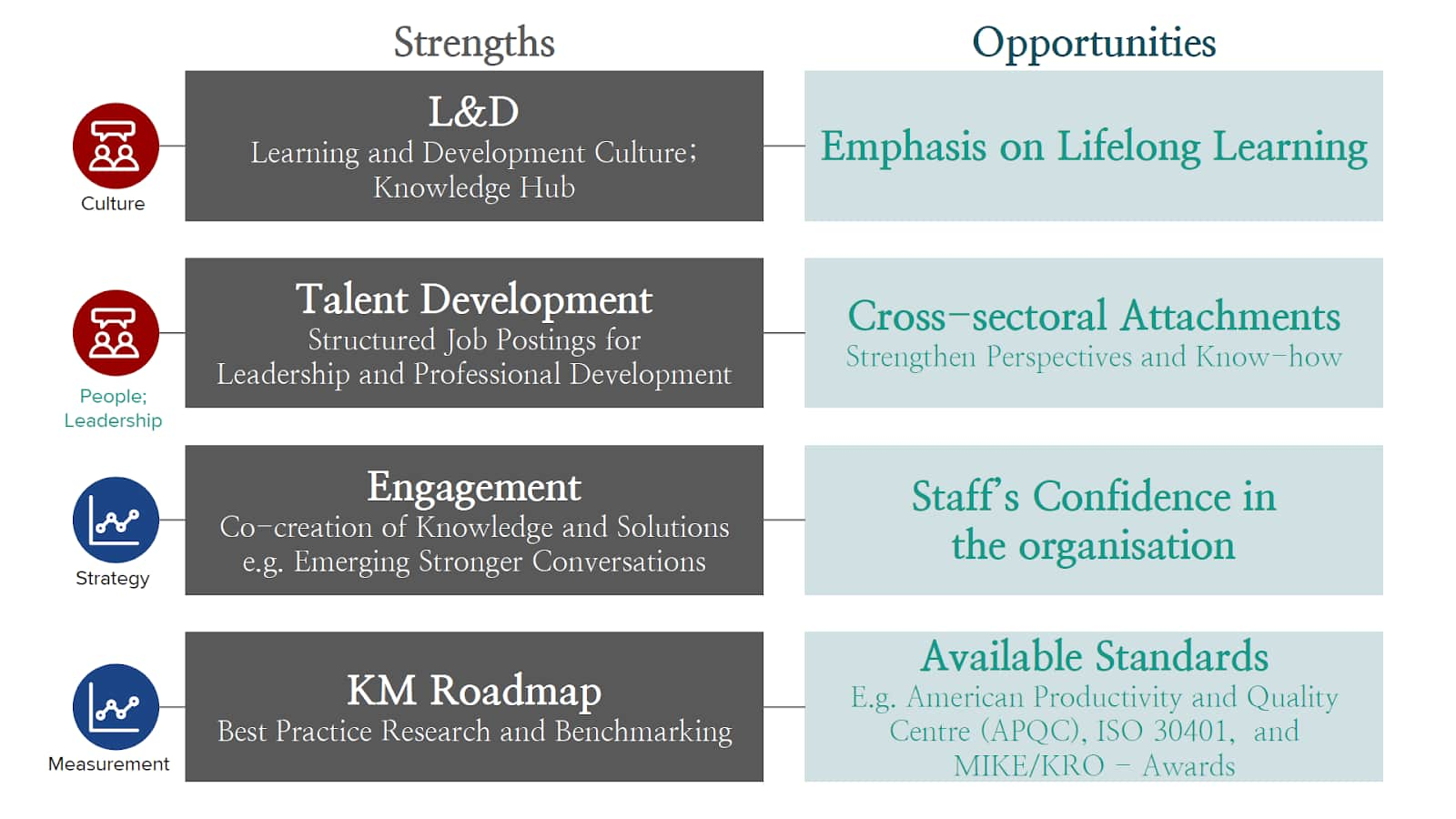
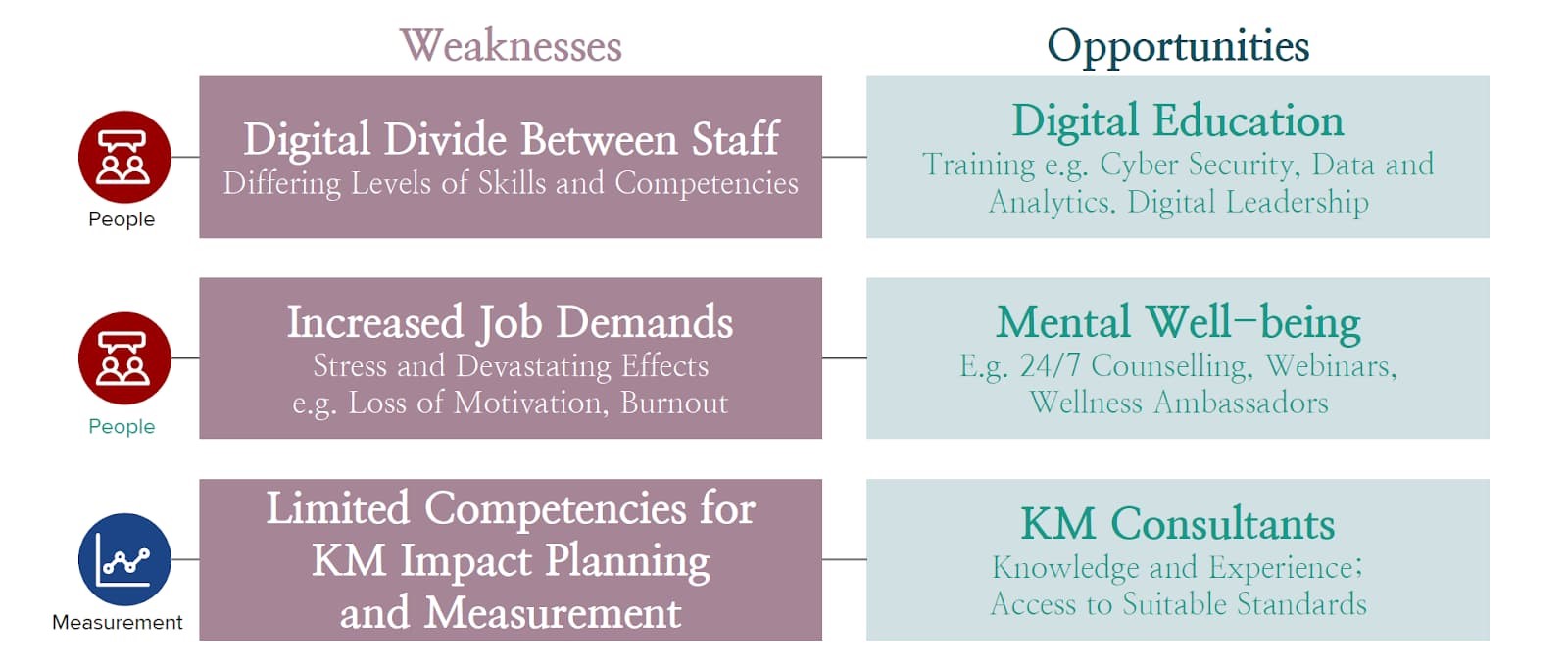
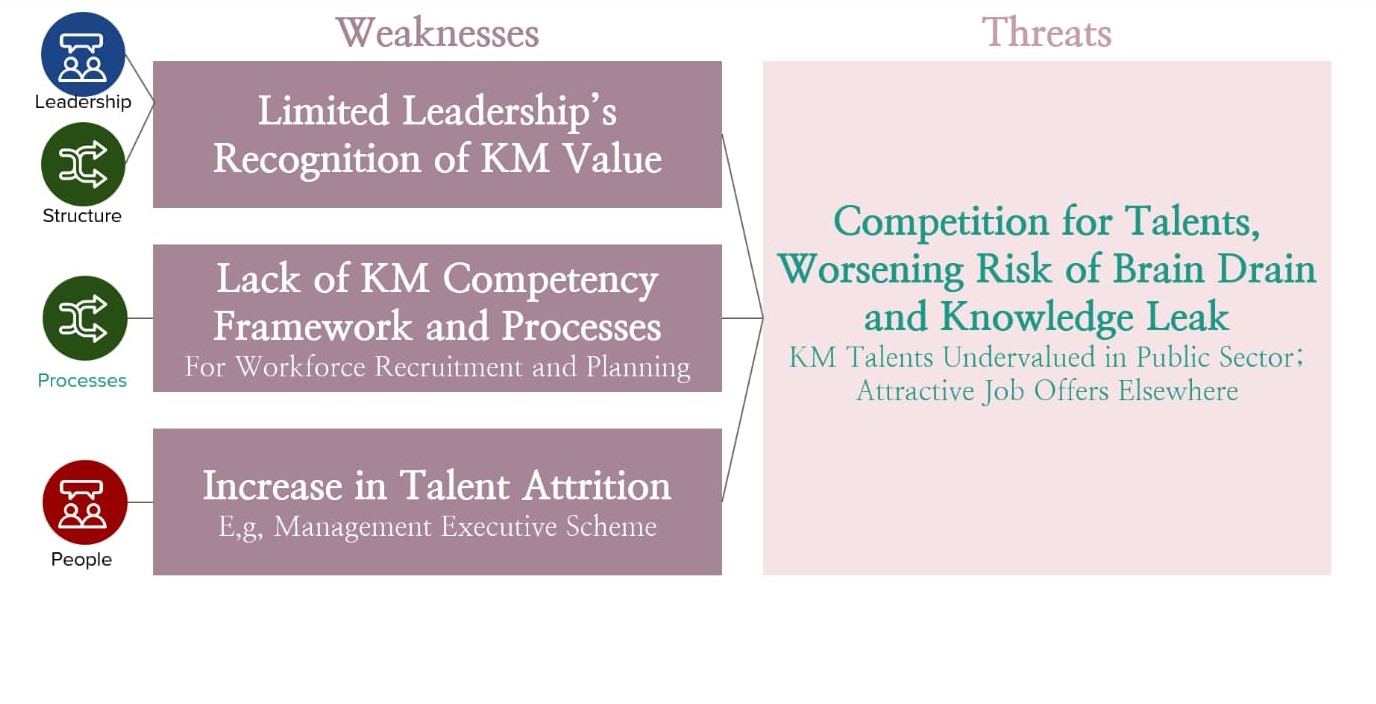
Returning to his comparison of KM and plumbing, Rajesh said that both require a systematic approach and resources to be effective. Both knowledge management systems and plumbing systems require ongoing maintenance and quality control. Knowledge needs to be regularly reviewed and updated to ensure its relevance and accuracy. Plumbing systems require regular inspection, maintenance, and repairs to prevent leaks, ensure safety, and comply with regulations. Without proper maintenance and quality control, both knowledge and plumbing systems can become inefficient and ineffective.
Rajesh provided four recommendations, each three underlying points:
Recommendation #1: Leveraging technologies to harness KM capabilities further, while balancing the need for human intervention and protection against cyber attacks
- Technologies can be wrong
- Need for human touch when technologies fail
- Increased number of data breaches could affect client confidence
Recommendation #2: Embedding KM strategies into business strategies and developing a KM roadmap
- Need to sell KM benefits to senior management given hefty resources
- KM strategies to be aligned with business strategies
- KM roadmap to allow clarity for staff and seek greater buy-in
Recommendation #3: Highlighting the importance of continuous learning and embracing future work
- Learning and sharing should not be tedious, thus acting as a deterrence
- Innovation will open possibilities for new work areas
- Nurture a culture of continuous learning to strengthen staff capabilities
Recommendation #4: Recognizing KM contributions as a criterion for job promotions, supplemented with people management skills
- Motivate staff for KM contributions through job promotions, bonus and special titles
- Familiarize new hires with tech tools
- Regular training for existing staff
He offered a list of 16 critical core skills for the future of work:
Cluster #1: Thinking critically
- Creative thinking
- Decision making
- Problem-solving
- Sensemaking
- Transdisciplinary thinking
Cluster #2: Interacting with others
- Building inclusivity
- Collaboration
- Communication
- Customer orientation
- Developing people
- Influence
Cluster #3: Staying relevant
- Adaptability
- Digital fluency
- Global perspective
- Learning agility
- Self-management
Rajesh concluded his presentation by supplying a leak toolkit in two parts:
Leak Toolkit, Part 1 – Preventive measures for learning before, during, and after projects:
Connect people to information and knowledge
- Case Study – share experience from project progress and outcomes
- Knowledge bank – repositories so that we have accumulated knowledge at hand
- Rapid Evidence review – build a new baseline so new projects spiral up and not start from zero
Connect people to people
- Community of Practice – learning from shared experiences and best practices
- Peer Assist – first-hand knowledge transfer
- Knowledge Café – informal learning through dialogue
- Knowledge Marketplace – push required knowledge to people and allow people to pull knowledge
Organizational Learning
- After Action Review – tacit knowledge capture
- Retrospect – capture lessons learned and publish for all to learn
- Knowledge Exchange – exit interviews, mentoring, coaching
Leak Toolkit, Part 2: – Guide to capturing and storing knowledge:
- Establish KM program objectives (strategy)
- Build a KM implementation roadmap
- Build a taxonomy
- Conduct handover and exit interviews
- Create a how-to guide
- Create staff profile pages (expert directories)
- Establish shared networks, blogs, and discussion forums
Rajesh’s presentation was both light-hearted and thoughtful. Those who attended it appreciated both his humor and his insights.
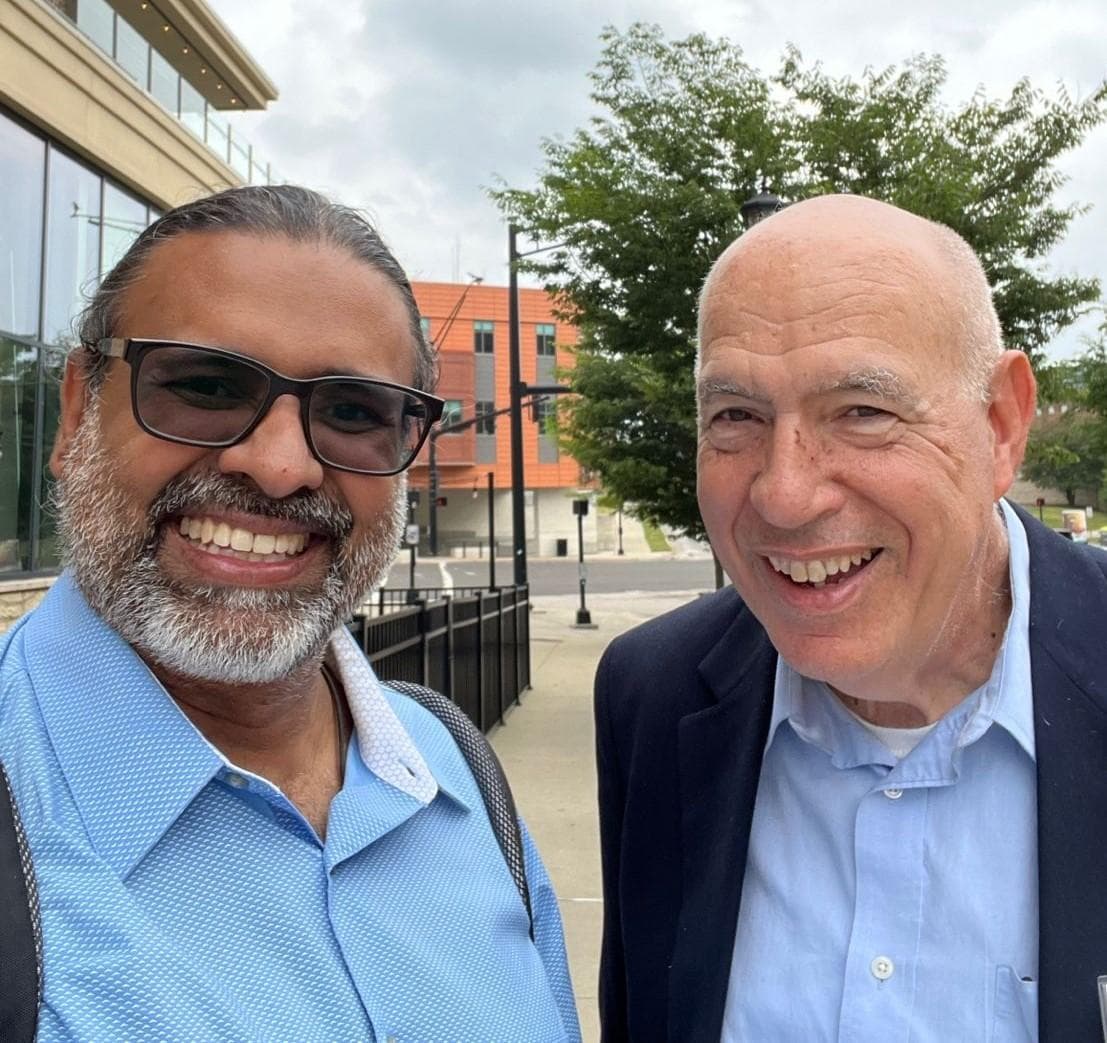
Rajesh with me during our walk following the symposium
Part 6 of this series will feature Rachel Teague. Part 4 featured Dan Ranta.

Stan Garfield
Please enjoy Stan’s blog posts offering advice, analysis, and insights drawn from many years as a KM practitioner. You may want to download a free copy of his book, Lucidea’s Lens: Special Librarians & Information Specialists; The Five Cs of KM from Lucidea Press, and its precursor, Proven Practices for Implementing a Knowledge Management Program. Learn about Lucidea’s Presto, SydneyEnterprise, and GeniePlus software with unrivaled KM capabilities that enable successful knowledge curation and sharing.
Never miss another post. Subscribe today!
Similar Posts
Lucidea’s Lens: Knowledge Management Thought Leaders Part 106 – Hubert Saint-Onge
As the creator of the Knowledge Assets Framework Hubert has shaped how businesses integrate strategy leadership and knowledge sharing to drive performance.
Lucidea’s Lens: Knowledge Management Thought Leaders
Part 105 – James Robertson
James Robertson is a pioneer in intranet strategy and digital workplace design helping organizations create seamless employee experiences. As the Founder of Step Two and a respected industry voice he has shaped best practices in content management portals and digital experience design.
Lucidea’s Lens: Knowledge Management Thought Leaders
Part 104 – Vincent Ribière
Vincent Ribière advances knowledge and innovation management through AI creativity and KM. Explore his work in academia research and industry leadership.
Lucidea’s Lens: Knowledge Management Thought Leaders Part 103 – Tony Rhem
In this edition of Lucidea’s Lens: Knowledge Management Thought Leaders we highlight Dr. Tony Rhem a leading expert in AI big data information architecture and innovation. As CEO of AJ Rhem & Associates Tony has shaped the fields of knowledge management governance and emerging technologies.





Leave a Comment
Comments are reviewed and must adhere to our comments policy.
0 Comments